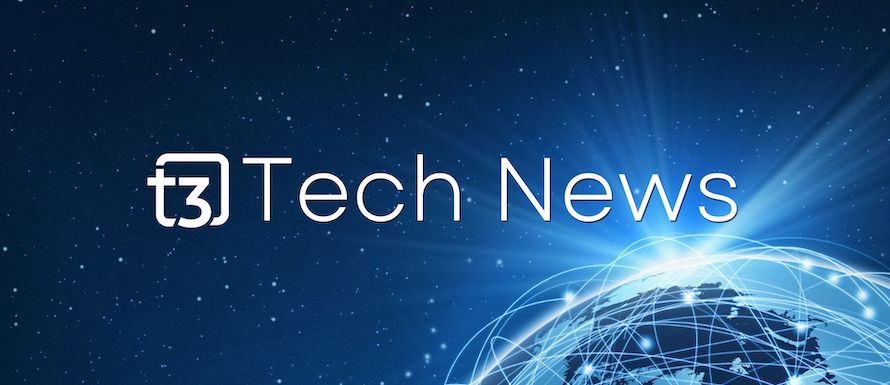Royal Bank of Canada Leveraging Artificial Intelligence for Personal Finance
Royal Bank of Canada Leveraging Artificial Intelligence for Personal Finance

The Royal Bank of Canada is launching new AI-powered services that provide personalized financial guidance and an automated savings program through the bank’s existing mobile application. These new services are powered by Personetics Cognitive Banking applications. RBC is branding these new services as NOMI – a play on the phrase “know me” – the idea being to use data relating to the client to provide a highly personalized experience.
The first service is called NOMI Insights, which is designed to provide personalized, timely and relevant tips to help customers manage and control their day-to-day finances. This service can provide daily insights into spending activities and patterns, identify unusual transactions, which may require action, automatically issue reminders based upon past activity, and predict potential issues and prompts for action.
LEARNS AS IT INTERACTS
Peter Tilton, SVP of Digital at RBC, provided a few examples of NOMI Insights’ capabilities: “If your salary is deposited into your account at a regular interval, and your current deposit is less than the norm, the app will alert you. If a credit card transaction that deviates from your normal patterns appears, the software can alert you.” This differs from alerts that US banks generally offer because they require that the client set up the alerts, whereas the RBC ones are generated automatically. Furthermore, NOMI Insights learns as it interacts with you and your data. The more it learns, the more accurate it becomes. It also learns what alerts you find valuable, and which you don’t, so you can decline some alerts and request more of others, all from within the banking app their customers already use.
PREDICTIVE CAPABILITIES
The predictive capabilities (which typically lacking on US systems today) are impressive as well. For example, if the app knows that your credit card bill generally arrives on the 15th of the month, and your average monthly spend is $2,000, it will look at your checking balance to ensure that you have sufficient funds to pay the bill. If you do not, it will remind you that you may want to add funds to your checking account.
NOMI Find & Save, another new service, is an automated savings service aimed at helping clients boost their savings. Based on predictive analysis of individual behavior and spending patterns, the solution enables RBC to provide clients with an effortless way to maximize savings, while ensuring that sufficient funds are available to cover future expenses.
Any RBC banking client can opt into this new service. When they do, an interest-bearing savings account is opened in their name. The application then determines the amount of cash in the checking account is necessary to cover the predicted monthly expenses. Any excess cash is then transferred to the savings account automatically. The auto save feature can be suspended at any time, for example if the client is carrying a large cash balance to fund a large purchase soon. In addition, clients can always move money back to the checking account to pay necessary expenses. This form of savings differs from the traditional approach where the client sets a savings goal and then tries to figure out how much they can save to achieve the goal. The NOMI proactive approach automates the savings. Any readers familiar with behavioral finance are sure to know that an automated approach generally yields far superior results than one that requires periodic monitoring and action by the client.
REAL GAME-CHANGER
This RBC initiative is noteworthy for a number of reasons. The first is its scale. Since the new features are built directly into the existing RBC mobile app, all RBC customers will have access. This is particularly significant in Canada, where banking is highly concentrated in a few large institutions, RBC being the largest. According to Tilton, one in nine Canadians will have access to NOMI features on their phones within weeks, and RBC intends to roll out additional NOMI features on a regular basis.
NOMI has the potential to significantly improve the client experience for RBC mobile users, generate additional savings for investment, and improve the financial literacy of millions of Canadians. It will also generate billions of data points that will help RBC better understand customer behavior and provide better customer service. It may also provide RBC with a real competitive advantage vs. peers that do not have access to similar data. This could, in summary, be a real game changer.
WHY THIS MATTERS TO U.S. ADVISORS
Many financial advisors in the United States have been slow to grasp the magnitude of technological disruption taking place in financial services. RBC’s NOMI is a clear indication of how AI is being applied to revolutionize financial services, and this is only the beginning. If nothing else, it should serve as a wake-up call that maintaining the status quo is no longer an acceptable business strategy.
It also raises the question of how independent advisory firms will compete in the US if their banking counterparts roll out similar technology. If the US banking sector deploys AI before independent advisors do, will it alter the balance of power between the banking giants and smaller, independent RIAs?
Individual financial advisors and RIA firms are not capable of deploying technology such as NOMI, however their service providers (custodians, broker/dealers, third-party technology partners) are. Advisors need to engage with their providers and demand access to cutting edge technologies.
The potential for AI in financial services is huge. It has the potential to improve client literacy, improve household balance sheets, and provide a much better, more personalized client experience. RBC deserves a great deal of credit for taking the lead in this all-important area. It is only a matter of time before similar technologies are widely deployed in the US.
How is your firm preparing for the coming of AI to financial services?


